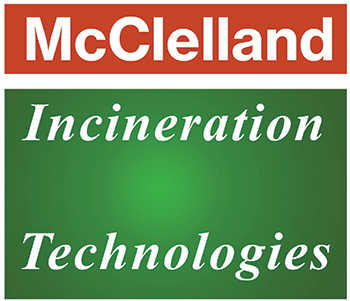 The efficient and environmentally sound management of hospital waste is not just a regulatory requirement; it’s a fundamental pillar of public health and safety. Healthcare facilities generate diverse waste streams, ranging from general refuse to highly infectious, pathological, and hazardous materials. The safe disposal of this waste is paramount to prevent disease transmission, protect healthcare workers, and safeguard the environment. Modern hospital waste incinerators stand as an indispensable technology in achieving these vital objectives.
The efficient and environmentally sound management of hospital waste is not just a regulatory requirement; it’s a fundamental pillar of public health and safety. Healthcare facilities generate diverse waste streams, ranging from general refuse to highly infectious, pathological, and hazardous materials. The safe disposal of this waste is paramount to prevent disease transmission, protect healthcare workers, and safeguard the environment. Modern hospital waste incinerators stand as an indispensable technology in achieving these vital objectives.
Understanding the Complexities of Hospital Waste
Hospital waste, often referred to as Bio-Medical Waste (BMW) in India, is categorized to ensure proper segregation and treatment. As per the Biomedical Waste Management Rules, 2016, and subsequent amendments in India, these categories include:
Human Anatomical Waste: Tissues, organs, body parts.
Animal Waste: Animal tissues, organs, body parts, carcasses from research or veterinary hospitals.
Microbiology & Biotechnology Waste: Lab cultures, specimens, vaccines.
Waste Sharps: Needles, syringes, scalpels, blades.
Discarded Medicines & Cytotoxic Drugs: Outdated, contaminated drugs, chemotherapy waste.
Soiled Waste: Items contaminated with blood and body fluids like dressings, cotton, and linen.
Solid Waste: Disposable items like tubing, catheters, IV sets (without needles).
Liquid Waste: From laboratories, cleaning, and disinfection activities.
Incineration Ash: Residue from incineration.
Chemical Waste: Discarded chemicals.
While general waste makes up a large portion, the hazardous components (infectious, pathological, pharmaceutical, sharps) demand highly specialized treatment to neutralize their risks.
The Imperative for Safe Disposal
Improper management of hospital waste poses severe threats:
Infection Transmission: Pathogens in waste can infect healthcare workers, patients, waste handlers, and the general public.
Environmental Contamination: Untreated waste can leach into soil and groundwater or pollute the air through open burning, leading to widespread contamination.
Public Health Risks: Exposure to hazardous chemicals, sharps, and drug residues can cause injuries, poisoning, and long-term health issues.
Legal & Ethical Obligations: Non-compliance with stringent Biomedical Waste Management Rules carries significant penalties and undermines public trust.
These challenges highlight why relying solely on landfills for hazardous hospital waste is insufficient and unsustainable.
The Role of Advanced Incineration Technology
Modern hospital waste incinerators offer a robust and highly effective solution for treating hazardous biomedical waste. Unlike older, less controlled burning methods, state-of-the-art incinerators are engineered systems designed for:
Complete Pathogen Destruction: Operating at consistently high temperatures (primary chamber typically 800°C, secondary chamber 1050±50°C with a residence time of at least 2 seconds), they ensure the complete destruction of infectious agents, including viruses, bacteria, and spores.
Significant Volume Reduction: Incineration drastically reduces waste volume by up to 90-98%, minimizing the need for landfill space for infectious waste and reducing transportation costs.
Neutralization of Hazardous Components: High temperatures effectively break down many hazardous chemicals and render sharps inert, eliminating the risk of injury and chemical exposure.
Controlled Emissions: Crucially, modern incinerators are equipped with multi-stage Air Pollution Control (APC) systems. These sophisticated systems capture and neutralize pollutants like particulate matter, acid gases (HCl, SOx, NOx), dioxins, furans, and heavy metals, ensuring emissions comply with stringent national (CPCB) and international standards.
Energy Recovery Potential: Many advanced incinerators incorporate Waste Heat Recovery (WHR) systems, converting the heat generated during combustion into steam or electricity, providing a sustainable energy source for the healthcare facility or other uses.
Mc Clelland Engineers: Your Partner in Compliant Waste Management
At Mc Clelland Engineers Pvt. Ltd., we understand the critical responsibility that comes with managing hospital waste. As a leading incinerator manufacturer in India since 1985, we specialize in designing, manufacturing, and installing cutting-edge Medical and Bio-Medical Waste Incinerators that meet and exceed the stringent requirements of the Biomedical Waste Management Rules, 2016, and other global benchmarks.
Our systems are engineered for:
Compliance: Ensuring adherence to prescribed temperature, residence time, and emission standards, including those for dioxins, furans, and particulate matter.
Safety: Incorporating automated waste feeding, ash removal, and robust interlocking systems to minimize human contact with waste and enhance operator safety.
Efficiency: Optimizing fuel consumption and operational costs while ensuring thorough waste destruction.
Customization: Offering a range of models and capacities tailored to the specific needs of small clinics, large multi-specialty hospitals, and common biomedical waste treatment facilities (CBWTFs).
Environmental Stewardship: Integrating advanced Air Pollution Control systems to ensure minimal environmental impact and promote sustainable practices.
We provide comprehensive solutions that go beyond mere equipment supply. From initial design consultation to manufacturing, installation, commissioning, and ongoing after-sales support and operator training, we ensure seamless and compliant waste management for healthcare providers. Discover our commitment to advanced, responsible waste treatment solutions by visiting our official website, https://mcclellandindia.com/.
Our deep expertise and extensive manufacturing capabilities and product range make us a trusted partner in helping healthcare institutions safeguard public health and the environment. Learn more about our specialized solutions for critical medical waste challenges at https://incineratormanufacturer.com/.
Building a Healthier Tomorrow
Hospital waste incineration is more than just a disposal method; it is a vital component of a responsible healthcare ecosystem. By adopting advanced, compliant incineration technologies, healthcare facilities can effectively manage hazardous waste, protect their communities, and contribute significantly to a healthier and more sustainable future.

